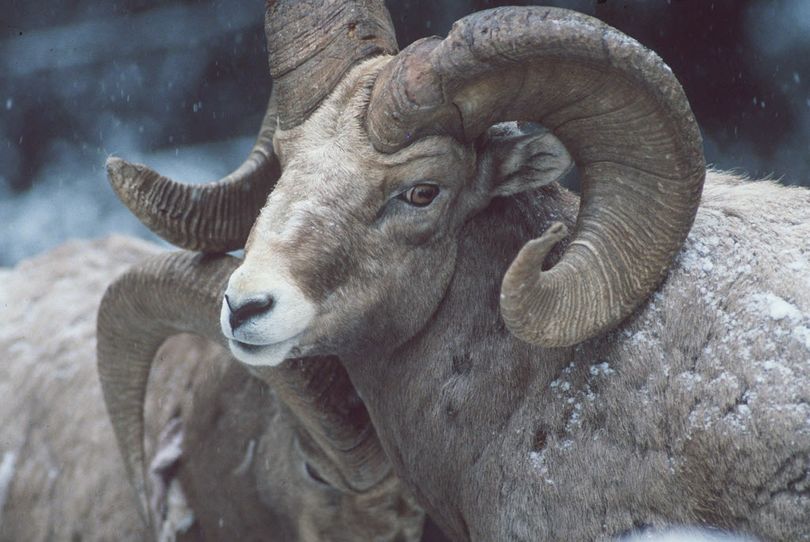Record $480K bid for bighorn sheep tag — the rest of the story

HUNTING -- The secrecy protecting deep-pocket bidders at trophy big-game hunting tag auctions mysteriously stepped up around 2013 after the record bid was made for a bighorn sheep tag.
A February New York Times story -- well worth reading -- on bighorn sheep hunting and the dilemma involved with funding wild sheep programs reminded me of the progression in protecting the identity of the high rollers. It also reminded me that I had unanswered questions about that record bid of $480,000 for the Montana governor's tag in 2013.
The record bid was widely reported, including here at The Spokesman-Review, but the rest of the story tended to stay in the rumor mill as it is with a lot of things linked to big money.
Based on rumors, I posed several questions to Montana Fish, Wildlife and Parks public affairs director Ron Aasheim before he retired this winter.
- Was the full $480,000 bid paid? And if it was, did the original bidder pay it?
- Is the back-story rumor true?
- Why did Montana's online listing of the high bids for the sheep tags end that year?
What the Montana officials Aasheim tapped confirmed is worth chewing on, and certainly worth a few hoots over drinks.
The $480,000 bid -- a staggering amount -- was never posted on the Montana Fish, Wildlife and Parks website. Up to that year, the high bids had been posted. Since then, all mention of the bids from previous years have been removed from FWP's website to make the process less transparent.
The record bid for the 2013 tag at the Foundation for North American Wild Sheep annual auction was made by a hunter who was seated with a girlfriend, I confirmed. Apparently he didn't know the auction was being broadcast live on video over the Internet. When he got home, he found out his wife had seen him with another woman. His wife reportedly was not amused. Domestic unrest forced him to back out of the nearly half a million dollar bid. His default left FNAWS and FWP scrambling behind the scenes to get a payment for the tag.
FWP officials confirmed that they worked with the first underbidder for the tag and a deal was made. Officials did not reveal how much the underbidder paid for the tag, but they confirmed that the original bidder paid the difference so the entire $480,000 bid was paid.
FNAWS took 10 percent of the total to fund its bighorn sheep research programs; the rest went to the state for its bighorn program.
The NYT story makes a good case for keeping these high bidders anonymous, but at what point does it get seedy and become a conflict in public interest?
"We know some people don't like the tag auctions because they think it's only for the rich," Aasheim said.
"That's why we also have a lottery tag that enables anyone to get his name in the hat for $5. We had a case of a hunter who bought just one ticket and drew that coveted tag.
"But the auction tag brings in more funding to the bighorn sheep program than all of the sheep lottery tickets and bighorn licenses we sell."
Bottom line: When it comes to funding wildlife programs, money not only talks, it gets things done.
And while the public may not know everything that goes on at a big game auction, spouses may not be totally in the dark.
